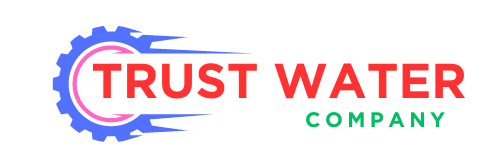ETP Plant Installation in Bangladesh (2024)
Bangladesh, a nation brimming with vibrant culture and economic potential, faces a crucial challenge: ensuring clean water for its people and protecting its environment. Industrial growth, while a driver of progress, can come at a cost – untreated wastewater polluting rivers and streams. Here’s where Effluent Treatment Plants (ETPs) emerge as environmental guardians, and understanding their installation costs in 2024 is vital.
Trust Water Company, a name synonymous with reliability in Bangladesh, offers ETP solutions to various industries. But before diving into costs, let’s explore the world of ETPs and the factors influencing their price tag.

Why ETPs Matter in Bangladesh
Imagine a bustling textile factory, a vital cog in Bangladesh’s economic engine. The dyeing process, while creating beautiful fabrics, generates wastewater laden with chemicals. Discharging this untreated water into rivers would be disastrous for aquatic life and public health. This is where ETPs step in.
ETPs are marvels of engineering, transforming industrial wastewater into a cleaner, less harmful effluent that can be safely released or reused. This not only safeguards the environment but also adheres to government regulations on effluent treatment set by the Department of Environment (DoE).
Factors Affecting ETP Installation in Bangladesh
The cost of installing an ETP in Bangladesh is not a one-size-fits-all situation. Several factors influence the final price tag:
- Capacity: The volume of wastewater your plant generates is paramount. Small-scale ETPs for domestic use can cost as little as 600,000 Bangladeshi Taka (BDT), while large industrial plants might require investments exceeding 10,000,000 BDT.
- Technology Employed: ETPs utilize various treatment methods, each with its own price point. Biological treatment, a natural process involving microorganisms, is a cost-effective option. Membrane filtration and chemical precipitation offer advanced treatment but come at a higher cost.
- Industry Type: The type of industry you operate in significantly impacts ETP cost. The textile industry, for instance, requires specific treatment processes to remove dyes and chemicals, which can be more expensive than treating wastewater from a food processing plant.
- Compliance Requirements: Stringent environmental regulations might necessitate more sophisticated ETPs, pushing the cost upwards.
- Installation and Maintenance: While the equipment cost is crucial, don’t forget about installation and ongoing maintenance expenses. Proper installation ensures optimal performance and longevity of your ETP.
A Cost Breakdown
Here’s a breakdown of estimated ETP installation costs in Bangladesh (2024) based on capacity:
- Small Scale (50-100 cubic meters/day): BDT 500,000 – BDT 1,500,000
- Medium Scale (200-500 cubic meters/day): BDT 1,000,000 – BDT 5,000,000
- Large Scale (1,000+ cubic meters/day): BDT 5,000,000 – BDT 20,000,000+
The Value of Clean Water
While cost is a significant factor, the benefits of installing an ETP extend far beyond the initial investment:
- Environmental Protection: Clean water is the lifeblood of our planet. ETPs prevent pollution, safeguarding aquatic ecosystems and public health.
- Compliance with Regulations: Avoiding hefty fines for non-compliance with government regulations is crucial for business continuity.
- Sustainable Production: ETPs enable water reuse, reducing dependence on freshwater sources and promoting sustainable production practices.
- Brand Reputation: Demonstrating a commitment to environmental responsibility enhances your brand image, attracting eco-conscious customers and investors.
Partnering for a Sustainable Future
Trust Water Company, with its expertise in ETP solutions, can guide you through the entire process – from selecting the right technology to installation and maintenance. We understand the importance of cost-effectiveness and offer solutions tailored to your specific needs.
Innovation and Collaboration
The future of ETPs in Bangladesh is bright. Advanced technologies like membrane bioreactors and zero liquid discharge (ZLD) systems are gaining traction, offering even cleaner water and reduced waste. Public-private partnerships can play a crucial role in developing sustainable and cost-effective ETP solutions, especially for smaller industries.
